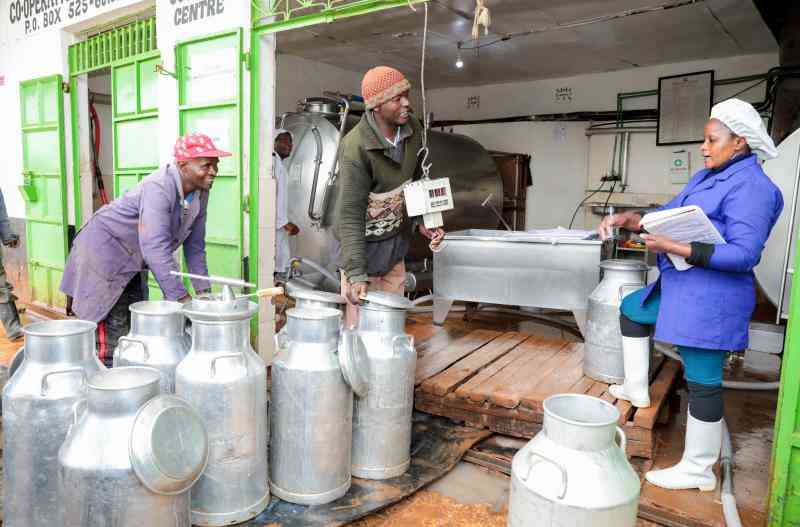×
The Standard e-Paper
Kenya’s Boldest Voice

Employees receive milk delivered at Mburugu Dairy Farmers Co-Operative Society located Ngandoni Ward, Manyatta Sub County and Embu County. [Nanjinia Wamuswa, Standard]
On a rainy morning at Mburugu Dairy Farmers Co-Operative Society, a bustling hive of activity unfolds. Motorbikes and vehicles arrive, laden with hundreds of milk cans collected from various farmers.